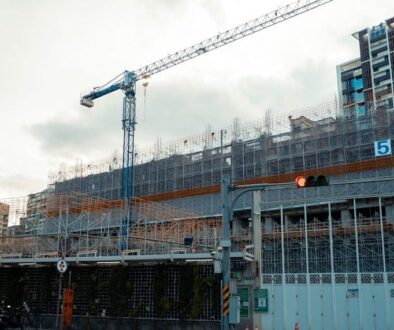Builders: How Long Should You Keep Those Documents?
Because of the cost and burden of keeping documents indefinitely, builders frequently ask how long various records should be maintained. There is no one size fits all answer because the answer depends on the type of document and the type of construction project. This article will discuss the various types of documents, the suggested retention periods, and the need to have a document retention policy that crystallizes such procedures.
A document retention policy (DRP) is a set of guidelines that a business follows to determine how long it should keep certain records, including paper and electronic documents. For the same reasons a business should have an employment manual for employee issues, a business should have a DRP for document storage issues.
A DRP should include the following types of information:
- Procedures for closing project files at the end of the project;
- Schedule for review of all stored files for an appropriate time to destroy;
- Designation of various types of documents and the time for destruction of each type;
- Designation of individuals authorized to make destruction decisions;
- Procedures for responding to litigation hold notices, audits, or investigations;
- Approved methods of destruction; and
- Procedures for documenting the destruction of all files.
Regardless of the destruction dates in the DRP, if certain records are subject to contractual retention times, an ongoing investigation, or a litigation hold notice, the builder should seek professional advice before destroying such documents. A litigation hold notice is an instruction to all employees not to destroy certain documents when a situation could lead to litigation or arbitration, such as a work place injury. Failing to preserve such records could lead to the imposition of sanctions against the business by a court.
Typically, a builder has at least the following types of documents: 1) general financials, including bank and income tax records, 2) employee records, 3) project-specific records, 4), corporate records, and 5) insurance policy files.
As a rule, most files should be destroyed after a period, although some records should be maintained permanently such as corporate records, including articles of incorporation, bylaws, and meeting minutes.
General financial records should be maintained for a period of seven years, because the Internal Revenue Service could review income tax records going back that far. The only exception to this seven-year retention rule for financial records is that records related to capital and fixed asset holdings should be preserved for the life of the asset, plus seven years. Likewise, salary records should be maintained for seven years and employment records should be maintained for seven years after the end of the employee’s employment.
As to project-specific records, the retention period should be after the time that the owner can sue the builder. In Texas, an owner can bring a lawsuit or arbitration claim for construction defects, in certain situations, for an extended time pursuant to a rule called the Statute of Repose. Under the Statute of Repose, certain construction dispute claims can be brought up to ten years after substantial completion, but this period can be extended to twelve years.
Because of the Statute of Repose, it is recommended that the following project document types be retained for thirteen years (the Statute of Repose plus one year: 1) drawings and specifications, 2) design/engineering calculations, 3) project diaries, 4) reports, 5) requests for information (RFI) and responses, 6) meeting notes and minutes, 7) contracts and purchase orders, 8) change orders, 9) all versions of shop drawings and other submittals, 10) construction progress photographs, 11) site progress/field reports, and 12) emails and other correspondence. Similarly, certificates of insurance should be kept for the same period. While this may seem like a long time to maintain these files, it is likely that the employees who were involved in the project either no longer remember critical details or are no longer available to supply testimony. As a result, these retained documents will likely be the only evidence of why and how the project was constructed.
Once documents are cleared for destruction, it is important to properly document what was destroyed and that the destruction was performed properly. Paper files should be destroyed by shredding, but electronic media should be destroyed as dictated by a qualified expert.
There are many aspects to a DSP that can be tailored to your needs, but having a comprehensive DSP will allow your business to rid itself of unnecessary documents and still have the peace of mind that the business has the documents necessary to protect itself.
For more information or help with an investigation or litigation, schedule a consultation today by calling us at 817-338-1700.


